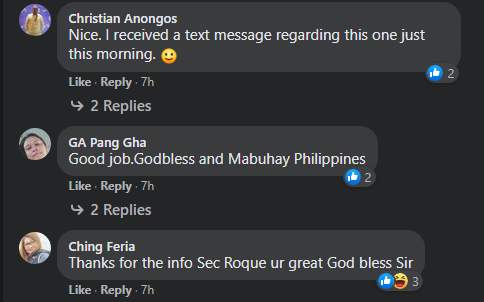The Duterte administration yesterday launched a more accessible line to the Citizens Complaint Center, having partnered with major telcos to provide the service free of charge.
The 8888 Citizens Complaint Center, which is under President Rodrigo Duterte’s Strategic Action and Response Office, hears the public’s grievances through its hotline and in turn, endorses these concerns to appropriate government agencies.
When it was first launched in 2016 via Executive Order 6, the Complaint Center could only be reached via landline.
Globe Telecom assured subscribers that the 8888 center had a successful trial run before it was reintroduced.
“Just recently, the 8888 CCC successfully tested out and launched the 8888 SMS/text access as an additional channel at the 8888 CCC. Due to its successful trial run, the 8888 CCC is now available to the public. All they need to do is to text their concerns or complaints to 8888,” Globe said.
Presidential spokesperson Harry Roque encouraged the public to use this service to course their complaints against corrupt practices of government officials and red tape, saying it is free of charge.
“Citizens can now simply text 8888 from both Globe and Smart and their affiliate telcos (telecommunication companies) and raise their concerns, complaints and grievances on graft and corrupt practices by government officials and employees and slow and inefficient delivery of government services and requests for government assistance free of charge,” he said.
He warned officials and workers involved in malpractice that it takes just “one text away” to get them.
“Those who are corrupt, lazy, incompetent in the government, be forewarned. You are now one text away,” Roque said.
‘Identify yourself’
So here’s a catch. Anonymous tips are allowed but not encouraged. At a press briefing, Roque explained that this is needed for the prize money.
“If the report has a basis and if it is proven that your tip allowed us to catch a corrupt personnel, you need to state your name—it won’t be released by 8888—just in case you want to collect a reward,” he said.
“If we can’t trace you, you won’t be able to collect your reward,” he added.
Duterte is offering reward money from P50,000 to P100,000 to anyone who could provide leads on dishonesty and graft within the bureaucracy.
The SMS service was one of the reforms the Commission on Audit recommended to the Office of the President in its 2019 audit report. It found that while the center managed to respond to 646,658 calls and referrals, there were 792,685 calls that were not taken up.
Criticisms and praises
The announcement of the 8888 CCC was mostly praised on Facebook where the Presidential Communications Operating Office’s post about it earned positive reactions.
The comments section was also filled with praises.

Some Filipinos on Twitter, meanwhile, expressed skepticism and perceived that the SMS is an effective medium to track government critics.
“Yeah right. So they can easily track (thru the telco) those not in favor of these corrupt monsters and who knows what they can do to them,” one user said.
“It would be so easy to identify and trace anti-government people through text messages compared to social media which is still able to provide a measure of anonymity,” another wrote.
Some Facebook users also quipped on what might happen should they issue their complaints against an elected official.

One Twitter user asked if Filipinos are willing to trust the Office of the President with their personal information.
“Can you really trust these guys with your personal information? It’s a no for me,” the user said.
These fears and worries might have stemmed from the passage of the government’s new counter-insurgency law, the Anti-Terrorism Law, last July 3 which drew outcry and protests.
It contains provisions perceived to curtail free speech and violate Filipinos’ basic civil liberties. These include the vague definition of terrorism and the legalization of wiretapping through telecommunications providers.
Influential civic and legal organizations, such as the Integrated Bar of the Philippines and the National Union of People’s Lawyers, human rights groups and other concerned Filipinos have since submitted their petitions to challenge the law’s constitutionality before the Supreme Court.
Moreover, in the past months, a public school teacher, a Cebu film artist and other civilians faced alleged illegal arrests over their negative remarks against the president and his allies.










